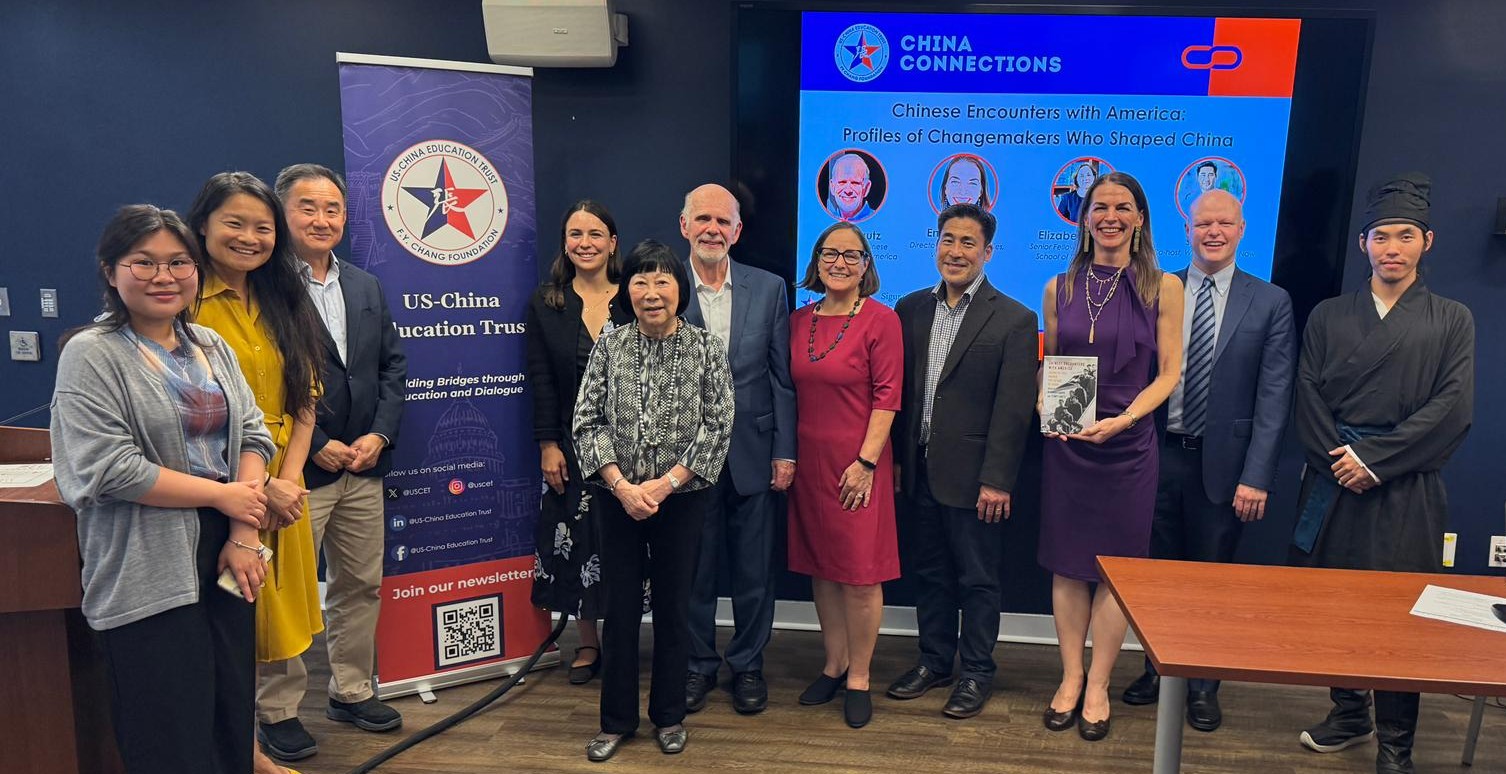
On September 9, 2025, USCET and the Sigur Center for Asian Studies co-hosted the latest installment of its China Connection series, “Chinese Encounters with America: Profiles of Changemakers Who Shaped China.” The panel discussion featured Terry Lautz, co-editor of Americans in China: Encounters with the People’s Republic, alongside chapter authors Emily Wilcox, director of Chinese studies at the University of William & Mary, and Elizabeth Knup, senior fellow at the Yale Jackson School of Global Affairs. Moderated by Scott Tong, co-host of NPR’s Here & Now, the conversation explored how cross-cultural encounters have shaped U.S.-China relations, highlighting the power of personal stories to foster mutual understanding and offer insight into the broader dynamics of the bilateral relationship today.
Rosie Levine, executive director of USCET, offered opening remarks that reflected on the mission of the China Connections series to engage the next generation of China specialists through real-world, experience-based conversations. She emphasized how the featured volume makes tangible the often abstract value of educational exchange, particularly at a time of rising visa restrictions and growing mistrust. Eric Schluessel, director of the Sigur Center, echoed this sentiment, noting that exchange and education are central to the university’s mission, even when imperfect, and remain vital to advancing human knowledge and mutual understanding. Moderator Scott Tong added a personal reflection, sharing how his own family’s experiences studying abroad illustrate a long-standing Chinese openness to the outside world — one that this book captures by spotlighting those who navigate both identities and move between cultures.
“Chinese openness to the outside world is institutional.”
Framing The Book: Terry Lautz
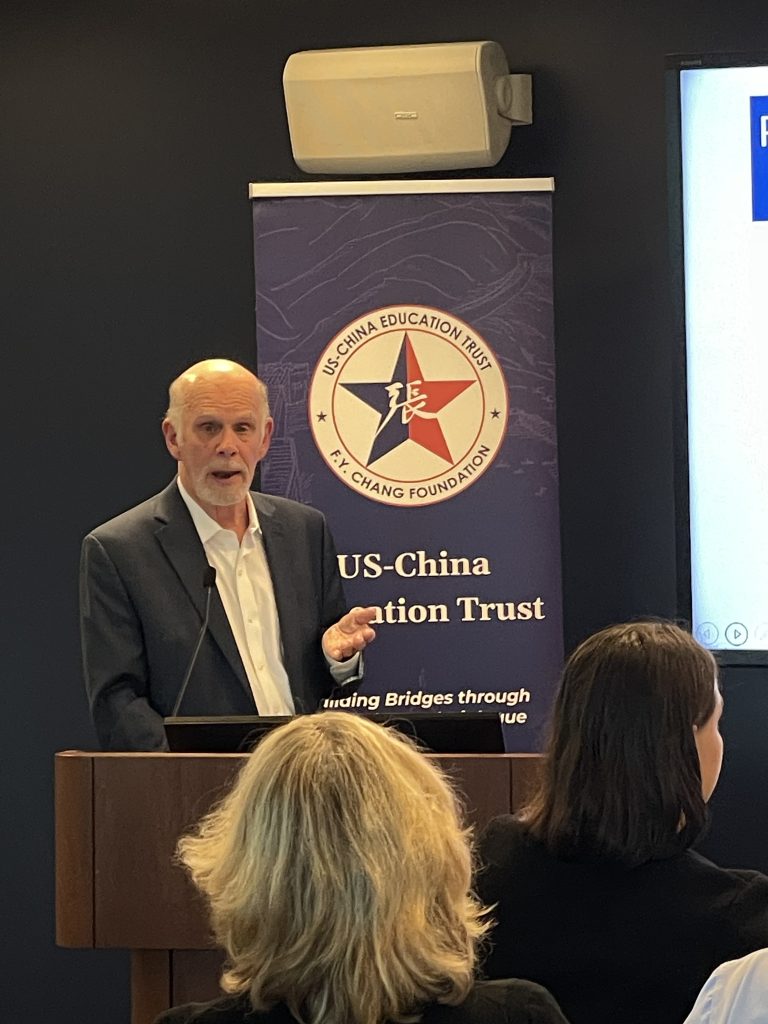
Terry Lautz introduced the volume by highlighting its thematic scope: the stories of Chinese individuals who lived, studied, and worked in the U.S., and then returned to shape China’s development. Inspired in part by his earlier book Americans in China: Encounters with the People’s Republic, Lautz explained that this new volume seeks to offer a counterpart exploring Chinese experiences in America across three broad periods, namely, the early Cold War, the reform and engagement era, and the period of globalization and cooperation.
Lautz framed the book around three guiding questions: Why did these individuals come to the U.S.? What did they experience? And how did they apply those experiences upon returning to China? Many, he noted, were “straddlers,” people who lived between cultures and contributed in ways that formal diplomacy could not. At a time when some argue that engagement with China has failed, Lautz offered a more nuanced perspective: this book shows how individuals, not just governments, have profoundly shaped the U.S.–China relationship.
“The whole book’s purpose is to complicate this perspective [that the Americans knew what was best for China and can change China] and to present the Chinese perspective.”
Figures in the Chapter: Zhang Ye and Yang Meiqi
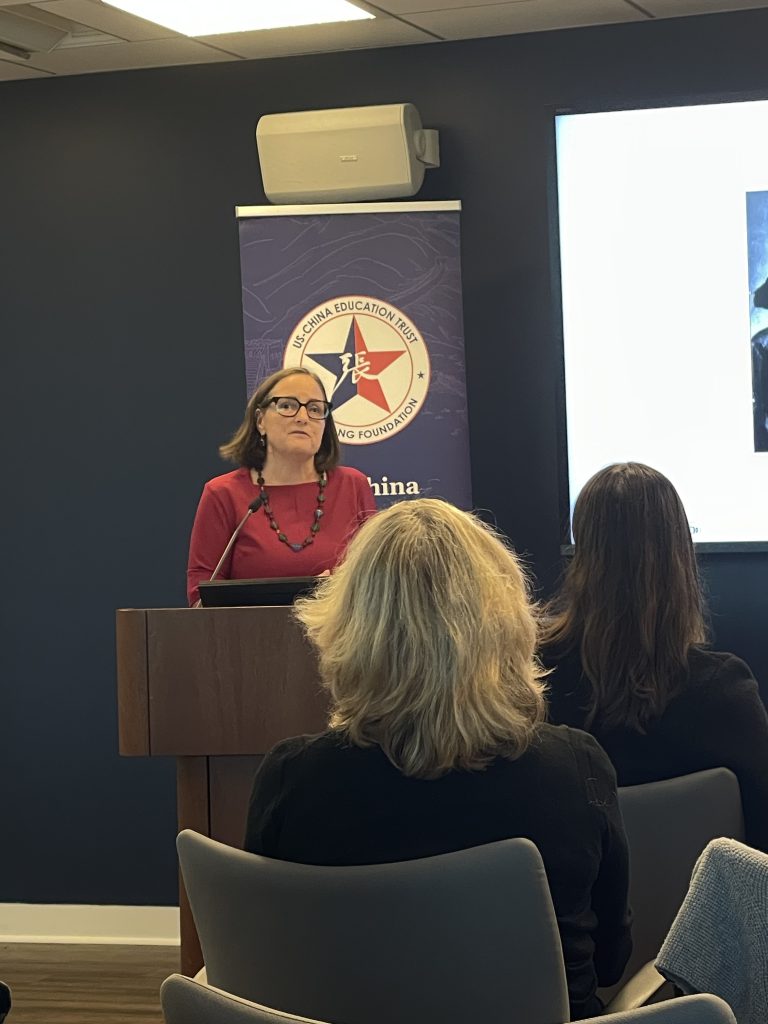
Elizabeth Knup reflected on her chapter profiling Zhang Ye, whose personal journey mirrored China’s broader transformation. Born in Harbin and raised as a son by her educator father during the Cultural Revolution, Zhang later studied English, worked at China International Travel Services, earned a Ford Foundation scholarship to pursue graduate studies in the U.S., and eventually joined the Foundation professionally. Though her time in the U.S. was brief, she played a pivotal role in fostering U.S.–China civil society partnerships, even as civic space in China narrowed. Knup highlighted how Zhang’s story revealed the personal trade-offs behind public work: limited agency in early adulthood, gender-based social constraints, and the painful decision to return to China for family, despite a desire to stay. While formal activism is increasingly restricted, Zhang’s legacy illustrates that civic engagement around shared concerns continues in meaningful, if quieter, ways.
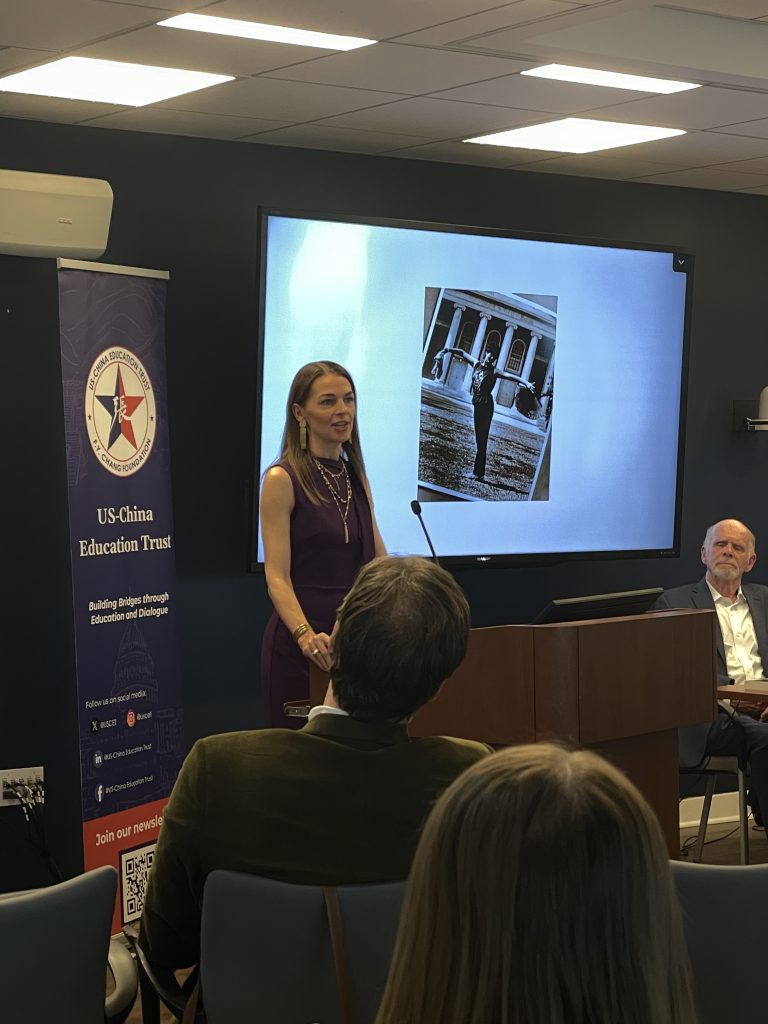
Emily Wilcox shared her research on Yang Meiqi, a pioneer of modern dance in China whose career bridged traditional forms and global innovation. Trained in Chinese folk and classical dance, Yang traveled abroad in the 1980s and was especially inspired by Asian performances she encountered. Her experience sparked a lifelong commitment to cultural exchange, leading her to form lasting partnerships with American dancers and institutions. Through these efforts, she played a foundational role in introducing modern dance to China, launching cohorts of performers and choreographers who transformed how movement and artistic expression were understood. Wilcox emphasized Yang’s openness to diverse perspectives, inviting collaboration even with dancers whose styles she personally disliked, because she valued dialogue and diverse styles. Her story shows how cultural exchange can drive not only artistic innovation but lasting institutional change.
Throughout the conversation, the panelists reflected on the shared qualities of the individuals profiled in the book: adaptability, openness, and the ability to navigate systems that often offered limited support. Many faced formidable barriers like language challenges, bureaucratic hurdles, and restrictive gender norms, and had little agency early in life, with careers assigned by the state and personal choices constrained by tradition. Yet over time, they carved out space for autonomy and influence.
Q&A and Closing Reflections
During the final portion of the program, audience questions prompted further reflection on the sacrifices and struggles embedded in these stories: the risk of being labeled a traitor, the loneliness of studying abroad, the emotional burden of leaving family, and the tension between opportunity and obligation.

Knup pointed out that these personal narratives reflect broader structural dynamics, and by pushing against limitations, these individuals helped carve new space for progress. Wilcox added that while earlier generations often relied on support from American institutions, today’s Chinese students must navigate their path more independently — often without the same support networks or cultural translation that previous straddlers were offered.
Whether through scholarship, dance, civil society, or diplomacy, each figure transformed their U.S. experiences into contributions uniquely shaped for China’s evolving context. As Terry Lautz noted, their impact becomes even more striking when viewed collectively, highlighted by figures like physicist Xie Xide, who not only built scientific ties between nations but also championed American studies in China, helping to institutionalize cultural understanding.
The discussion closed with a powerful reminder: cross-cultural encounters are rarely easy, and their outcomes may take time to unfold. Yet when individuals engage across borders with openness, humility, and imagination, the ripple effects can resonate far beyond a single lifetime.
Speaker Biography
Panelists
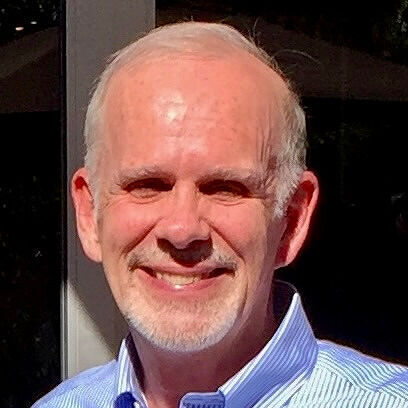
Terrill E. Lautz is the former vice president of the Henry Luce Foundation and has served as board chair of the Harvard-Yenching Institute, the Lingnan Foundation, and the Yale-China Association. He graduated from Harvard College (magna cum laude) and holds MA and PhD degrees from Stanford University, where he was a Whiting Fellow in the Humanities.
Dr. Lautz is the author of Americans in China: Encounters with the People’s Republic (Oxford, 2022) and John Birch: A Life (Oxford, 2016). After retiring from the Luce Foundation in 2008, he was visiting professor, interim director of the East Asia Program, and a Moynihan Research Fellow at Syracuse University’s Maxwell School.

Emily Wilcox is Margaret Hamilton Professor of Modern Languages & Literatures/Chinese Studies at William & Mary and a 2024 Guggenheim Fellow in Dance Studies. Wilcox is core faculty in the Program in Asian and Middle Eastern Studies and affiliate faculty in the Program in Asian and Pacific Islander American Studies and the Program in Gender, Sexuality, and Women’s Studies. Wilcox is also a Center Associate of the Lieberthal-Rogel Center for Chinese Studies at the University of Michigan, where she was previously tenured Associate Professor of Modern Chinese Studies before joining William & Mary in January 2021.
Wilcox earned her undergraduate degree from Harvard University, her MPhil from the University of Cambridge, and her PhD from the University of California, Berkeley. Wilcox has been a visiting graduate student and Fulbright Scholar at the Beijing Dance Academy, an international postdoctoral research fellow at the Shanghai Theatre Academy, and visiting graduate faculty at Minzu University of China. At Michigan, Wilcox directed the PhD program in Asian studies and was Associate Chair of the Department of Asian Languages and Cultures. At William & Mary, Wilcox served as interim chair of the Department of Modern Languages and Literatures and director of the Chinese Studies Program.
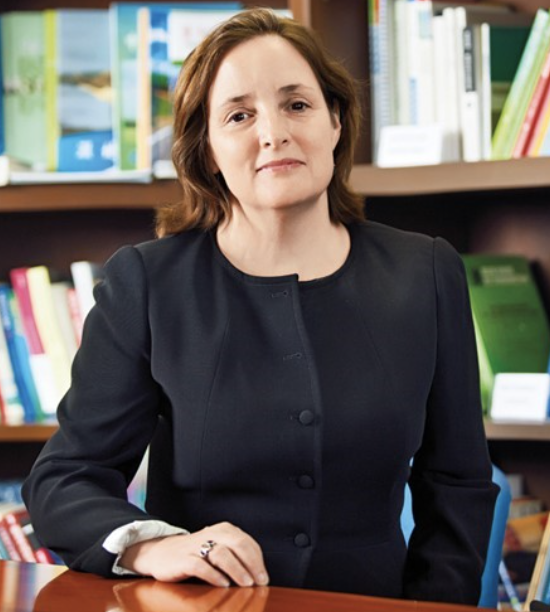
Elizabeth Knup is currently a member of the USCET Advisory Council. She is also a senior advisor to China Focus at The Carter Center, senior advisor to the Penn Project on the Future of U.S.-China Relations at the University of Pennsylvania, and a member of the board of directors of the National Committee on U.S.-China Relations, where she co-chairs the Program Committee.
She completed her decade-long tenure as regional director for China at the Ford Foundation in December 2023. In that role, she oversaw Ford’s operations in China and its programmatic strategies focused on U.S.-China relations, understanding the impact of China’s political and economic power in the world, and strengthening China’s domestic philanthropic sector. Elizabeth first moved to China in 1998 to be the American director of the Hopkins-Nanjing Center for Chinese and American Studies after serving 10 years at the National Committee on U.S.-China Relations. She then spent 11 years in the private sector as president of Pearson Education China; chief representative of Pearson PLC; and managing director of Kamsky Associates. While at Pearson, the company owned the Financial Times newspaper and Penguin Books, in addition to its core education publishing, testing, and technology companies.
Moderator
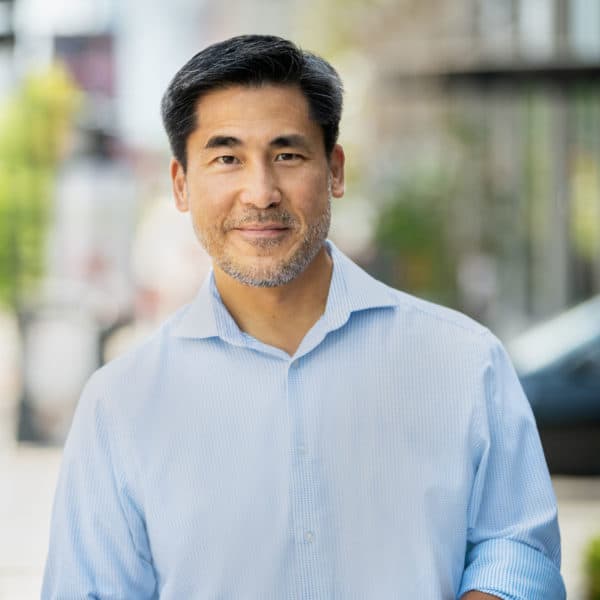
Scott Tong joined NPR’s Here & Now as a co-host in July 2021. Before that, he spent 16 years at Marketplace as Shanghai bureau chief and senior correspondent. Scott has reported from more than a dozen countries, including Venezuela, Ethiopia, Burma, and Japan. During COVID-19, he reported a series of features on the pandemic and long-term innovation. At Marketplace, he investigated baby selling in China’s international adoption system, slave labor in Chinese brick making plants, and in Washington, D.C., the doctoring of Environmental Protection Agency science findings on the risks of fracking. Scott has reported from the 2011 Japan tsunami, the 2011 famine in the Horn of Africa, and the economic suppression of Uyghur Muslim minorities in the western Chinese region of Xinjiang.
Prior to Marketplace, he worked as a producer and reporter for the PBS NewsHour, where he joined a team covering post-invasion Iraq in 2003. Scott served as a Knight-Wallace journalism fellow at the University of Michigan in 2013-14.
China Connections
Why should Americans be interested in China? USCET launches China Connections, a new monthly series hosting discussions with experts to explore their work, gain insights into current events, and learn what a career in the China field looks like today. These events highlight individuals with unique expertise on China to provide students, young professionals, and members of the public a deeper understanding of current events and increase American student interest in pursuing a focus on China. These events are mostly held in person at George Washington University with online engagement.
